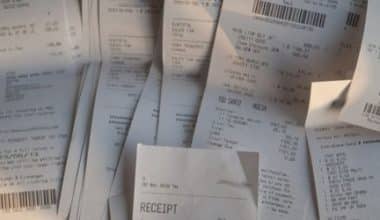Installment loans for bad credit enable consumers with a low or restricted credit history to obtain the funds they require. It’s doubtful that you’ll be able to acquire a personal loan if you have terrible or poor credit, as defined by FICO (a score of 350 to 579). However, lenders on this list make loans to people with credit scores ranging from 580 to 600.
The interest rates you obtain are determined by your credit score and the qualifications you meet. This means that you shouldn’t expect to get the best and lowest rates if you have bad credit. However, your goal should not be to receive the best conditions possible, but rather to find a lender who offers a loan that you can qualify for. Here are some of the best lenders of personal installment loans to consider.
Best Installment Loan Companies in 2023
These are our recommendations for the finest installment loans, organized by main categories.
- Best for good credit: Marcus by Goldman Sachs
- Best for poor credit: OneMain Financial
- Best for debt consolidation: Happy Money Payoff loan
- Best for building credit: SeedFi
- Best for online loan experience: LendingClub
- Best for larger loans: SoFi
- Best for fast funding: LightStream
- Best for quick funding: Money Pup Loan
#1. Best For Good Credit: Marcus by Goldman Sachs
Why Marcus by Goldman Sachs is unique: Marcus offers affordable rates for borrowers with good credit and does not impose origination or late fees. Furthermore, if you pay on time for 12 consecutive months, you can defer your next payment by one month without incurring any additional interest.
- Automatic payment discount – Enrolling in automatic payments reduces your APR by 0.25%. This allows you to pay down your loan principal more quickly.
- Longer loan durations for customers with good credit – Marcus has loan lengths ranging from 36 to 72 months. If your credit is solid enough to qualify for a longer loan, Marcus may be able to offer you a longer loan term than other lenders.
- Direct payments to creditors – If you take out a loan to consolidate credit card debt, Marcus can send the funds directly to up to ten credit card or personal loan accounts.
#2. Best Option For People With Bad Credit: OneMain Financial
Why OneMain Financial stands out: According to OneMain Financial, a major portion of the money it lends out goes to those with FICO ratings below 620, making this loan a viable alternative for consumers in need of bad credit loans. Because the lender has over 1,400 branches, you may ask questions or obtain assistance with an application in person.
- Offers secured and unsecured loans – Having collateral will improve your chances of approval and the loan terms you may be provided. For example, OneMain Financial demands a car lien for significant loans.
- Relatively high-interest rates – While OneMain’s APRs are lower than those of a title loan or payday loan, they are greater than those of certain other lenders.
- Fees — State origination fees differ. You could be charged a fixed cost of $25 to $500, or 1% to 10% of the borrowing amount. Late penalties and nonsufficient money costs may also be assessed, depending on your state.
- Accepts joint applications – You can apply with someone else, so having a co-applicant with stronger credit may increase your chances of approval.
#3. Best For Debt Consolidation Loan: Happy Money Payoff Loan
Why Happy Money’s Payoff loan is unique: Happy Money’s Payoff loan provides a solution for consumers looking to consolidate credit card debt. You can apply to prequalify by providing information about your income, credit, and savings, and Happy Money will show you various loan options with varying interest rates, monthly payments, and loan terms.
- Direct payments to creditors – Your funds can be transferred directly to credit card companies, removing some of the headaches from debt consolidation.
- Doesn’t necessitate good credit — You could be approved with lower credit scores (say, in the 600 level), but Happy Money advises you can’t have any open delinquencies on your credit report when you apply.
- Online loan management portal – You can track your progress toward debt repayment and contact help online. According to Happy Money, you will be able to speak with people rather than chatbots.
- Slow approval – Approval can take up to seven business days, and payments will be in your account within three to six business days. (Depending on your bank, you may have to wait before you can access your money.) If you arrange for direct payments to credit card companies, disbursement may take even longer.
#4. Best For Building Credit: SeedFi
Why SeedFi is unique: SeedFi offers Borrow & Grow credit-builder loans that put money aside for you in an account. When you pay off the loan completely, the funds are released. And, unlike some other credit-builder loans, you can access a portion of the money you borrow right away.
- Small loan amounts – At the start of your loan, you can access between $300 and $5,000 of the total amount borrowed. This range is lower than what lenders normally give for personal loans to borrowers with established credit histories, but it allows for slightly bigger loan amounts than most credit-builder products.
- Potential to recuperate late costs – Late fines of up to $15 apply, but these fees are added to your account and refunded when you pay off your loan completely. There is also no origination cost.
- Payment reporting to credit bureaus – Because SeedFi notifies the three major credit agencies when you repay your loan, making on-time payments may improve your credit scores.
#5. Best For Online Loan Experience: LendingClub
Why LendingClub distinguishes out: The full application may be completed online, including on a mobile device. A to-do List function helps you to keep track of the information you’ve submitted and see if anything else needs to be added. A comprehensive help section walks you through each stage of the application.
- Co-applicants are permitted – You may apply jointly with another person. If that person has stronger credit, a combined application may result in a lower interest rate or a greater loan amount than you might acquire on your own.
- Most approvals occur within a day – LendingClub reports that loans granted in the first quarter of 2022 were financed within 24 hours on average after approval. Depending on your bank, you may have to wait a while before you can access your money.
- There are just two loan lengths available – loans are available in 36- and 60-month maturities. If you are dissatisfied with either of those repayment arrangements, you will need to find another lender.
#6. Best Option For Large Loans: SoFi
Why SoFi distinguishes out: SoFi provides personal loans ranging from $5,000 to $100,000. In comparison, other lenders frequently cap their loans between $40,000 and $50,000.
- The promise of no fees – SoFi does not charge an origination fee or any other usual fees.
- Funds may be disbursed immediately – Borrowers may receive funds from their loan on the same day it is approved. (However, the actual timing will be determined by your bank.)
- Decrease for automatic payments – If you set up autopay from a SoFi Checking and Savings account and direct deposit of at least $1,000 per month to a SoFi Checking and Savings account, you can enjoy a 0.25% discount on your APR.
- May be difficult to qualify – While SoFi’s advertising eligibility criteria aren’t extremely explicit, the lender implies that you’ll need great credit and a high monthly income.
#7. LightStream is the best option for quick finance.
Why LightStream differentiates out: LightStream offers same-day loans on banking business days. You’ll need to sign your loan agreement, share your bank account details and conclude the verification process by 2:30 p.m. Eastern time to potentially get the funds the day you’re accepted. (Your bank will choose when you can access your funds.)
- LightStream guarantees to beat competitors’ rates — If you are authorized for an unsecured loan from a competitor, LightStream will beat the rate by 0.1 percentage point, subject to certain conditions.
- Autopay discount – If you have excellent credit and set up autopay before your loan is funded, you could receive a 0.5 percentage point rate reduction.
- Prequalification is not an option — The lender does not provide prequalification. To find out if you qualify for a loan, you must complete an application and submit it to a rigorous credit investigation.
Strong credit is required, as are income restrictions. You should also have a long credit history with a diverse range of account types, a track record of timely payments, and a track record of saving.
For the Best quick funding: Money Pup Click here
How Did We Choose These Loans?
We analyzed over two dozen lenders to create this list of the top personal installment loans. We chose lenders based on costs, APRs, funding timeliness, transparency, and application process.
What is an Installment Loan?
Installment loans are financial solutions that allow you to borrow a set amount of money and repay it gradually over time. These loans, which include personal loans, often have fixed interest rates and regular monthly payments, so you always know how much you owe each month and when your last payment is due. Assume you borrowed $30,000 with a 10.99 percent APR and a 60-month repayment period. For five years, you would pay $652.12 every month.
What Can I Do With an Installment Loan?
One of the appealing aspects of an installment loan is its adaptability. An installment loan can be used to finance a large purchase, such as a car or a home. A personal loan, which is a sort of installment loan, is commonly utilized for a wide range of purchases. They can be used to pay for things like:
- A car.
- A home.
- Debt consolidation.
- Weddings.
- Home improvement projects
- Expenses for an emergency.
Types of Installment Loans
There are numerous installment loans available, each tailored for a unique purpose. Here are a few examples of the most common:
- Personal loan: This is a lump-sum loan that is typically repaid over the course of two to five years. It’s normally unsecured, and the funds can be utilized for a variety of purposes, including debt consolidation, home renovation projects, wedding expenses, and more.
- Mortgage loan: A mortgage is a secured loan used to purchase real estate, typically a house. The house serves as security and secures the loan. The loan is paid in monthly installments over a long period of time, usually 15 or 30 years.
- An auto loan: An auto loan is a secured loan used to purchase a car, with the vehicle serving as security. The loan is normally repaid monthly over a period of two to seven years. Use our auto loan calculator to estimate your monthly payment.
Is It Possible to Get an Installment Loan if I Have Bad Credit?
Installment loans for those with bad credit are available. However, you will need to do your homework, shop about, and compare several possibilities. Each lender has various eligibility standards, so check into the ones you might be able to get with bad credit. You should also anticipate a higher interest rate and possibly additional loan expenses, such as origination fees, with your installment loan.
What Effect Does an Installment Loan Have On Your Credit?
The loan amounts, rates, and periods you qualify for are influenced by the strength of your credit. Here’s how getting an installment loan can affect your credit:
- Making timely payments may help your credit score. Because payment history accounts for 35% of your credit score, being on time with your monthly payments can enhance your credit. On the other hand, being late or missing payments may have a negative impact on your credit score.
- Paying out the debt in full can help your credit. While paying out the loan on time and in full can improve your credit, paying it off early is unlikely to have a significant influence on overpaying it off on the agreed-upon schedule.
- It will remain on your credit report for ten years. When you pay off your loan, the account is considered closed. Closed accounts in good standing might help your credit because they stay on your credit report for 10 years.
When Should You Consider Bad Credit Installment Loans?
If your FICO score is between 580 and 600, you should look into installment loans for bad credit. Similarly, even if you have a limited credit history—or no credit history at all—you may be able to qualify for a bad credit installment loan.
To qualify for and repay a loan, you must have the adequate monthly cash flow to cover the required installments. This should include interest and fees.
How to Get Bad Credit Installment Loans
Consumers with poor credit typically have fewer financing possibilities than those with better credit. However, there are a variety of lending choices for people with terrible credit, and it’s still important to shop around for the best deal. Take the following procedures before selecting a lender:
#1. Examine the basic requirements.
Most lenders require a minimum credit score, making it harder for consumers with poor credit to qualify. If you have a low credit score or a restricted credit profile, look for a lender with fewer stringent requirements.
#2. Examine interest rates.
Borrowers with bad credit are less likely to qualify for low-interest rates from regular lenders, while lenders who specialize in less eligible borrowers often offer lower rates. Nonetheless, some lenders are more prepared to offer cheaper interest rates than others. When researching installment loans for people with weak credit, look for lenders who provide the lowest annual percentage rates (APRs) based on your creditworthiness.
#3. Prequalify.
Many online lenders allow prospective borrowers to assess what APR they are likely to qualify for without performing a formal credit investigation. Prequalify for an installment loan with bad credit with various lenders to guarantee you get the best offer possible.
#4. Take into account fees and other charges.
Compare lenders depending on whether they charge additional fees, such as prepayment penalties or late payment fees, in addition to the APR. Bad credit loans can include higher fees, which can add to the overall cost of borrowing.
#5. Make a monthly payment calculation.
Calculate the monthly payment for various loan offers using a personal loan calculator based on available loan amounts, APRs, and payback conditions. This allows you to evaluate loan offers while also ensuring that the loan payment fits comfortably inside your monthly budget.
#6. Examine client feedback.
Read online evaluations from previous and current borrowers before committing to a lender. Websites such as the Better Business Bureau (BBB) and Trustpilot can assist in identifying red flags such as a long or difficult approval process, exorbitant APRs, or bad customer service.
Are There No-Credit-Check Installment Loans Available?
There are lenders who offer long-term installment loans with no hard credit pulls. However, acquiring finance from a lender who does not check your credit is not usually a good option. Lenders cannot assess your creditworthiness and ability to repay if credit checks are not performed.
No-credit-check lenders may advertise themselves as alternatives to traditional last-resort funding sources such as payday loans and vehicle title loans, but consumers should proceed with care. “Applicants who seek lenders that will not check their credit are doing so because they either have bad credit or no credit,” says John Ulzheimer, an Atlanta-based expert on credit reports and identity theft. “In any case, they’re high-risk borrowers, and the terms they’ll be paying will be punitive in comparison to normally underwritten installment loans.”
“If lenders can’t access your credit reports and scores, they’ll subsidize their risk in other ways, which means lower loan amounts and higher rates,” he continues. If you have your credit checked with a mainstream lender, you’ll likely find higher loan amounts, longer repayment timelines, and better rates.
Are Installment loans Secured or Unsecured?
The installment loans we’ve discussed here are unsecured, which means you don’t need to offer any security to get approved. However, secured loans, which require collateral, are also available and may be your best option if you have bad credit.
How Do Debt Consolidation Installment Loans Work?
Installment loans are useful for debt consolidation since they have lower interest rates than credit cards. For example, if you have many lines of credit card debt with an 18% APR, you can save money by shifting that debt to a 9% APR installment loan. As a result, you pay less interest and can concentrate on paying one fixed cost rather than several.
What Distinguishes Installment Loans From Payday Loans?
Your salary serves as collateral for payday loans. When you receive a payday loan, you either send the lender a postdated check to deposit on your next payday or authorize the lender to instantly remove the money from your bank account after you get paid. Payday lenders impose excessive fees and can trap borrowers in an ongoing cycle of debt accumulation.
Is It Possible to Have Numerous Installment Loans?
It is not only feasible but also rather frequent, to have multiple installment loans. If you have a mortgage plus a car payment, you already have two installment loans.
What Happens if I Miss a Payment on an Installment Loan?
Your credit score may suffer if you default on an installment loan. When your credit score falls, lenders view you as a higher risk. As a result, you may not qualify for the best rates and terms on future loans – assuming you can even qualify for another loan at all. If you use something of value to secure your installment loan, the lender may be able to confiscate the collateral you provided.
Installment Loans FAQs
What is an installment loan example?
Auto loans, home loans, personal loans, and school loans are all examples of installment loans.
What credit score do you need for an installment loan?
A credit score of at least 580 is required to qualify for a suitable installment loan from a big lender. However, you will most likely need a higher credit score to qualify for a personal installment loan with no initiation fee and a low APR. Personal loans have different conditions than other types of installment loans.
{
“@context”: “https://schema.org”,
“@type”: “FAQPage”,
“mainEntity”: [
{
“@type”: “Question”,
“name”: “What is an installment loan example?”,
“acceptedAnswer”: {
“@type”: “Answer”,
“text”: “
Auto loans, home loans, personal loans, and school loans are all examples of installment loans.
“
}
}
, {
“@type”: “Question”,
“name”: “What credit score do you need for an installment loan?”,
“acceptedAnswer”: {
“@type”: “Answer”,
“text”: “
A credit score of at least 580 is required to qualify for a suitable installment loan from a big lender. However, you will most likely need a higher credit score to qualify for a personal installment loan with no initiation fee and a low APR. Personal loans have different conditions than other types of installment loans.
“
}
}
]
}
Related Articles
- INSTALLMENT LOAN: Best Installment Loans in 2022
- Personal Loans vs. Other Lending Options
- CONSUMER LOANS: Definition, Types & Rates
- CONSUMER CREDIT: Meaning, Types, Pros, and Cons
- IRS INTEREST RATES: THE CALCULATION & IRS INTEREST RATES UPDATED!!!






